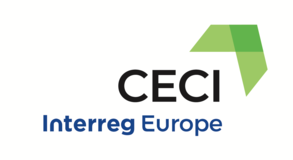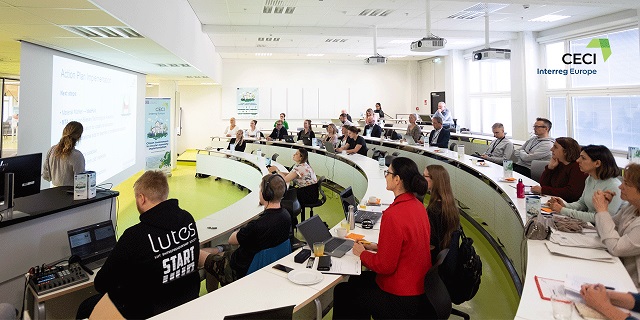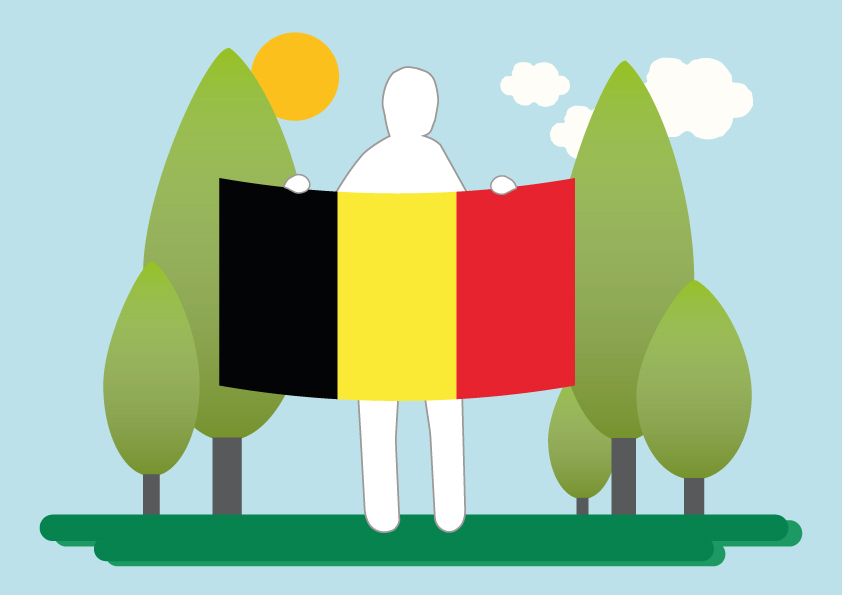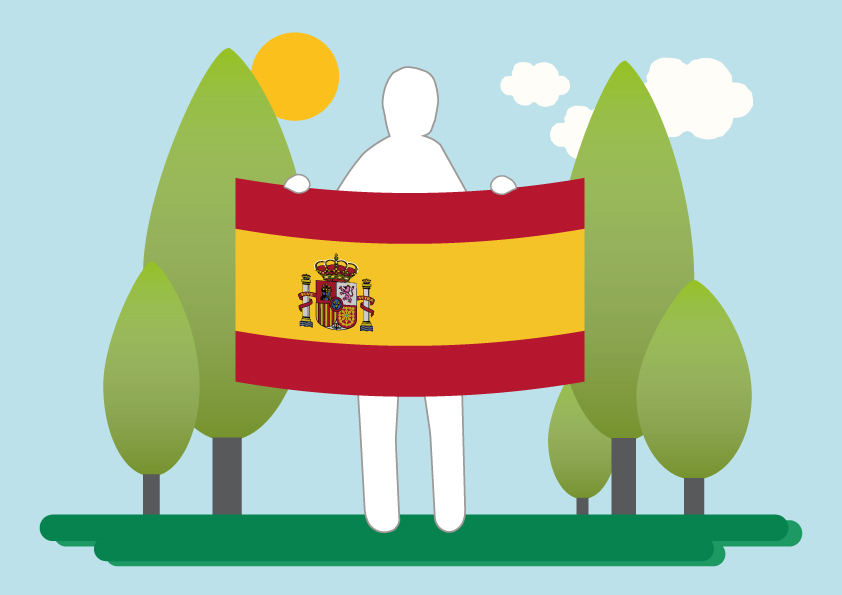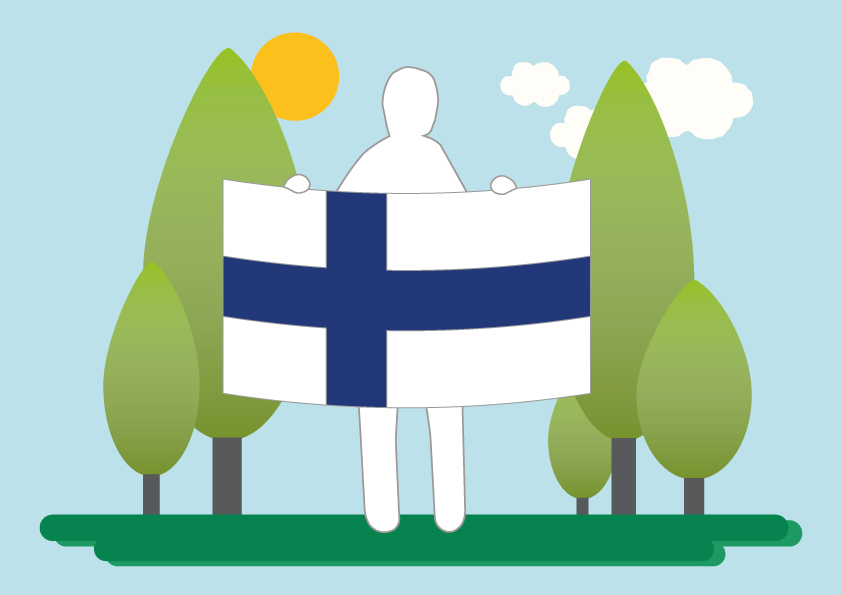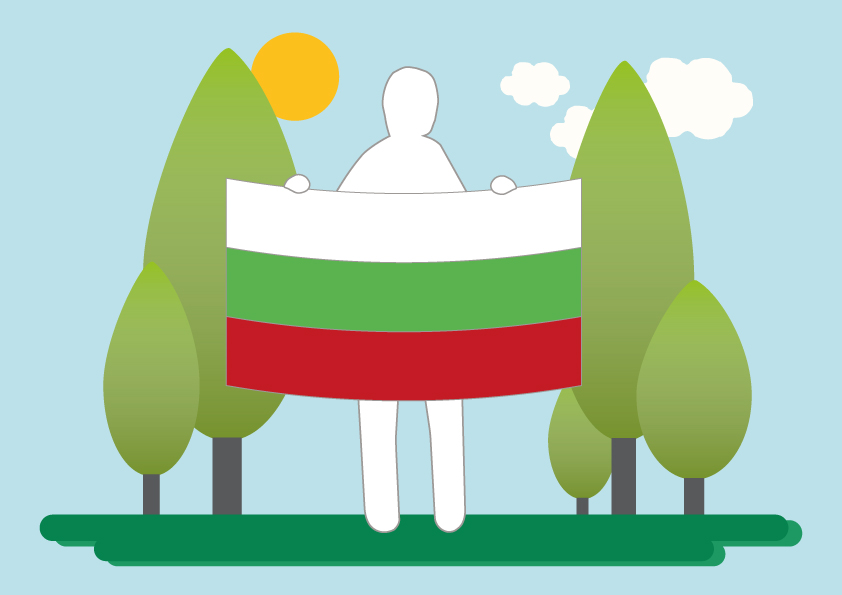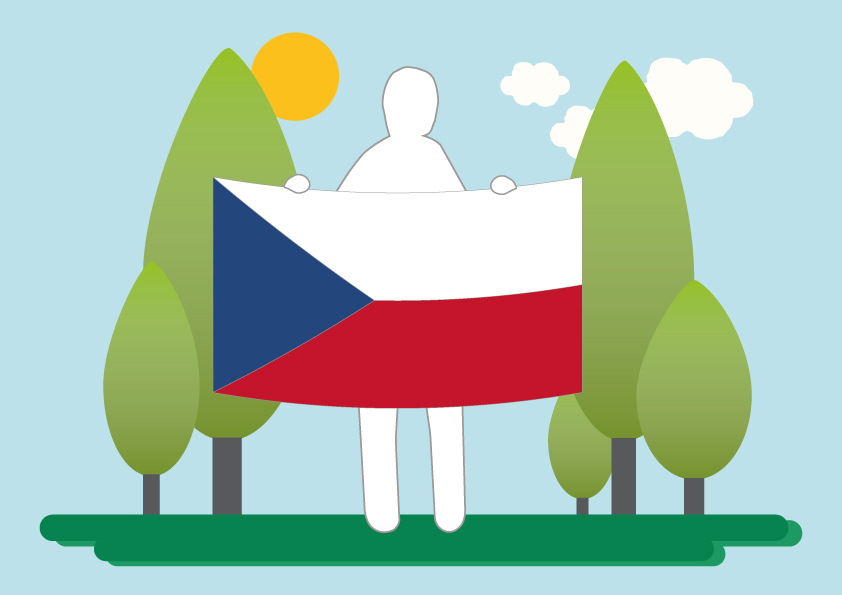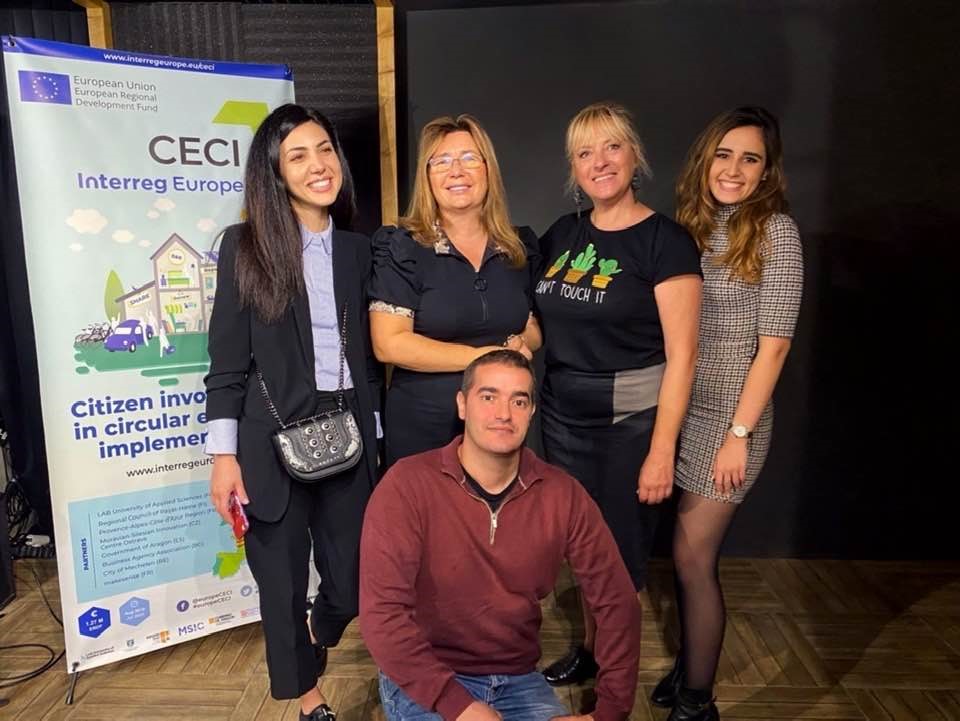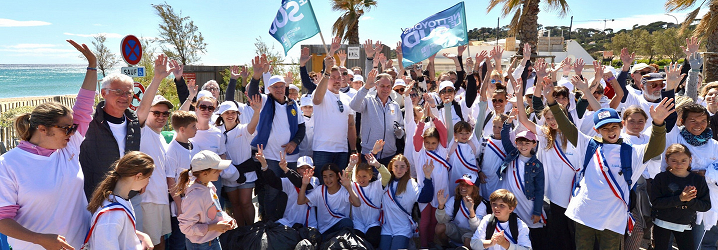Developing Citizen Participation in Circular Economy
LAB University of Applied Sciences leads an Interreg Europe funded project CECI-Citizen involvement in circular economy implementation with eight partners from six countries: Finland, France, Czech Republic, Spain, Belgium and Bulgaria.
In December 2019, CECI kick-off meeting was organized in Lahti, Finland. Lahti has acknowledged that in order to reach ambitious environmental targets, all the local players, including citizens, must be involved in the process. Lahti’s goal is Finland to become a pioneer of a circular economy society (Lahti 2020). Representing the city of Lahti and sharing a similar focus and aims with the CECI project, Milla Bruneau, the Executive Director of Lahti European Green Capital 2021, was delighted to open the first interregional meeting.
Picture 1. Milla Bruneau presenting Lahti as the Green Capital 2021 to the CECI partners. Photo: Marjut Villanen
Bruneau introduced the European Green Capital award granted by the European Commission. Since 2010, one European city is selected as the European Green Capital of the year. The winning city consistently achieves high environmental standards and is devoted to further environmental improvement and sustainable development. Lahti was awarded the Green Capital 2021 by the European Commission on 20 June 2019 (European Commission 2019).
Additionally, Bruneau introduced Lahti’s achievements, as well as highlighted ongoing and future projects. Among other benefits, the Green Capital title brings new funding opportunities and development in four themes: Carbon-neutral life, Citizen participation, Circular economy, and Nature and water. That corresponds with the goal of the CECI project aiming to involve citizens in circular economy implementation.
Päijät-Häme Good Practices – Citizens Involvement & Circular Economy
Later the day, Päijät-Häme good practices related to citizens and circular economy were introduced.
CitiCAP – Citizens’ Cap-and-Trade Co-Created designs and implements citizens’ personal carbon trade (PCT) scheme, making Lahti becoming the first city in the world with such a trade. CitiCAP is included in SUMP – the Sustainable Urban Mobility Plan for smart and sustainable mobility; e.g. building a smart bicycle highway with smart solutions and services in Lahti.
4H Association – Sustainable development projects. 4H organizes several youth clubs promoting sustainable and resource-wise life.
Maallemuuttajat 2030 – Sharing Economy and Services in Rural Regions increases knowledge about sharing and service economy in rural regions and creates (part-time) job opportunities and services in the countryside.
Anttilanmäki-Kittelä Residents Association – Circular Economy in Everyday Life – Action Plan aims for its residents to live a resource-wise life includes several actions: e.g. library of goods, goods and services exchange between residents, repair and maintenance development, promoting urban farming, carsharing and ridesharing.
Summary
Through sharing knowledge and good practices between CECI partners, the partner regions are better equipped to develop regional action plans for citizen engagement and adoption of new circular and sharing economy solutions. The Good Practices identified in CECI will be published on the project website and selected examples will be shared for wider EU use through the Policy Learning Platform, established by the Interreg Europe Programme.
The article was originally published in the LAB Sustainability blog on 24.02.2020, you can read it here.
